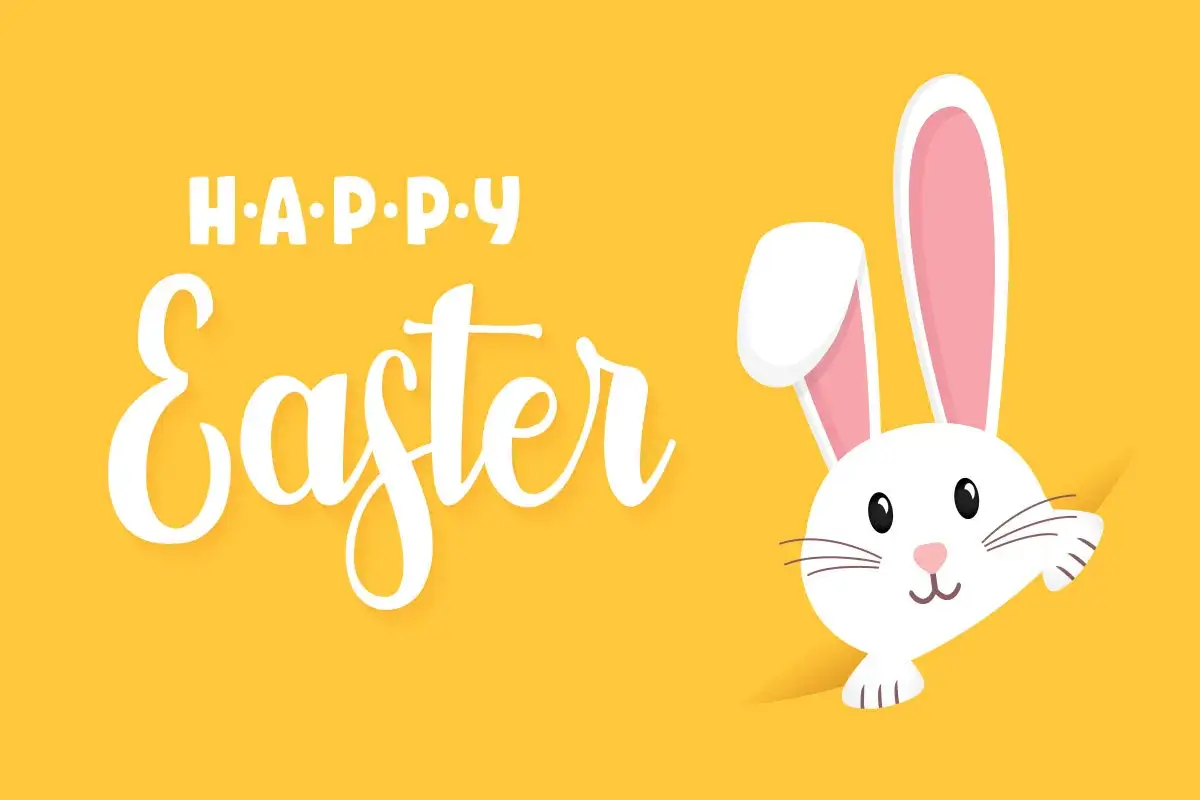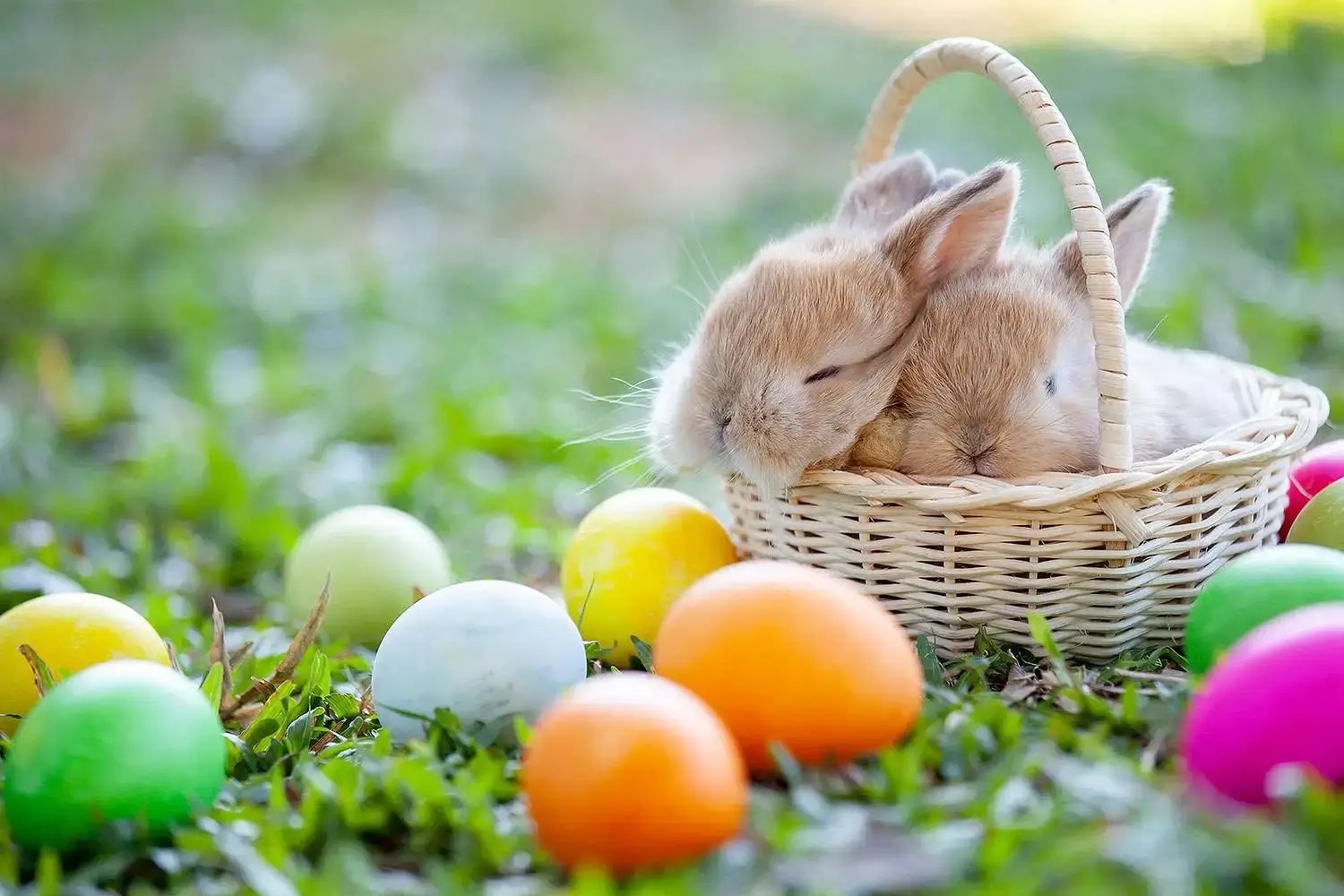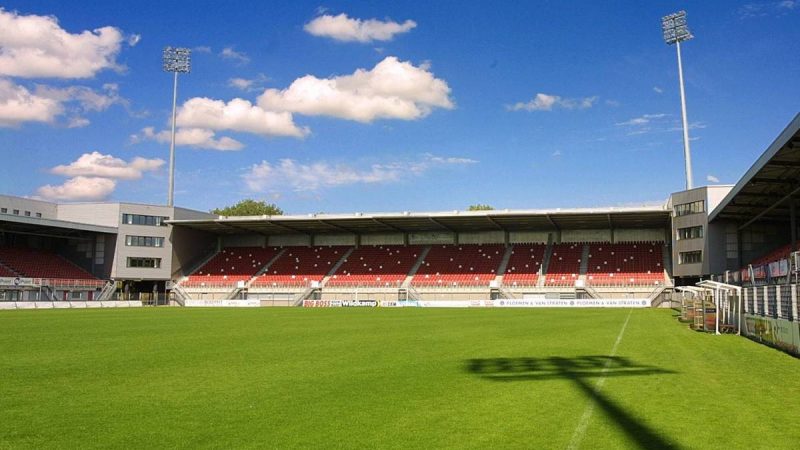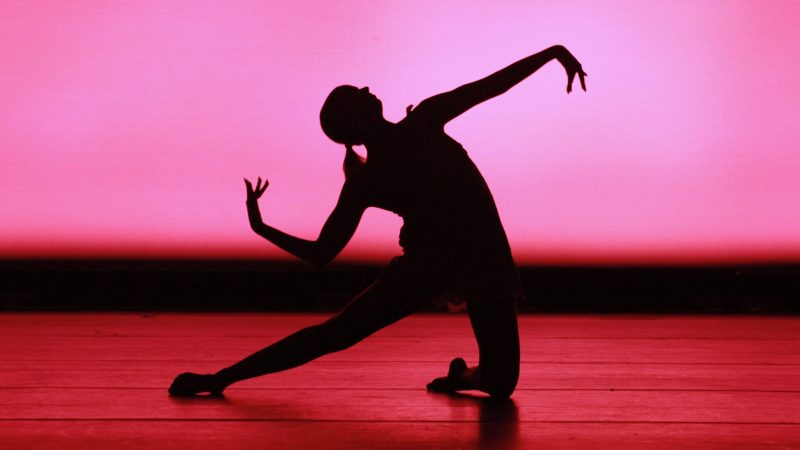Easter is a time of joy and celebration, and this year, the phrase ‘Happy Easter’ seems to be trending like never before. But what exactly is the significance of this phrase and why is it gaining so much attention? In this article, we unravel the mysteries behind the joyful greeting and explore its relevance in today’s world.
Rooted in Christian beliefs, Easter is a holiday that commemorates the resurrection of Jesus Christ. It is a time of new beginnings, hope, and renewal. ‘Happy Easter’ is the traditional greeting exchanged during this time, conveying well wishes and happiness for the occasion. However, its popularity has extended far beyond religious circles, with people from all walks of life embracing it as a way to express their festive spirit and extend warm wishes.
Today, the phrase has become ubiquitous, featured in advertisements, social media posts, and greetings cards. It has become a symbol of positivity and goodwill, bringing people together in celebration. But why has it become such an enduring tradition?
Join us as we delve into the origins of ‘Happy Easter’ and discover its impact on modern society. Get ready to unlock the joy and significance behind this trending Easter greeting.
The history and origins of Easter
Contents
- 1 The history and origins of Easter
- 2 The symbolism and significance of Easter
- 3 The cultural and religious traditions associated with Easter
- 4 The commercialization of Easter
- 5 The impact of social media on holiday greetings and trends
- 6 Exploring the reasons behind the trending phrase “Happy Easter”
- 7 The evolving meaning of Easter in modern society
- 8 Ways to celebrate Easter and spread joy in today’s digital age
- 9 Embracing the joy and meaning of Easter in the digital era
- 10 Author
Easter has a rich history that dates back thousands of years. It is deeply rooted in Christian beliefs and commemorates the resurrection of Jesus Christ. The word “Easter” itself has its roots in Old English and Germanic languages, derived from the word “Eostre,” which was the name of a pagan goddess associated with spring and fertility.
The celebration of Easter has its origins in the Jewish holiday of Passover, which commemorates the liberation of the Israelites from slavery in Egypt. According to the New Testament, Jesus’ crucifixion and resurrection occurred during the time of Passover, and early Christians began to celebrate Easter as a way to honor his sacrifice and triumph over death.
Over the centuries, Easter has evolved to incorporate various cultural and religious traditions from around the world. From the Easter Bunny and Easter eggs to Easter processions and feasts, each tradition adds its own unique flavor to the celebration.

The symbolism and significance of Easter
Easter is a time of profound symbolism and significance. It represents new beginnings, hope, and renewal. The resurrection of Jesus Christ is seen as a triumph over death and a promise of eternal life. It is a time for believers to reflect on the sacrifice made for their sins and to rejoice in the hope of salvation.
The symbolism of Easter is also intertwined with nature and the changing seasons. The arrival of spring brings with it a sense of new life and growth, mirroring the resurrection of Christ. The blooming flowers, chirping birds, and longer days serve as reminders of the beauty and abundance of life.
The cultural and religious traditions associated with Easter
Easter is celebrated in various ways around the world, with each culture adding its own unique traditions to the mix. In many countries, the Easter Bunny is a beloved figure who brings gifts and hides eggs for children to find. The eggs themselves symbolize new life and are often decorated with vibrant colors and intricate patterns.
In some cultures, Easter processions are a common sight, with people marching through the streets carrying religious icons and statues. These processions serve as a public display of faith and a way to honor the life and teachings of Jesus Christ.
Easter feasts are also a popular tradition, with families and friends coming together to share a meal and celebrate the joyous occasion. Traditional dishes vary from country to country, but common elements include lamb, ham, and various sweet treats like hot cross buns and Easter cakes.
The commercialization of Easter
In recent years, Easter has become increasingly commercialized. Retailers seize the opportunity to market a wide range of products, from chocolate eggs and Easter-themed decorations to clothing and gifts. While the commercialization of Easter has its critics, it also serves as a way for people to participate in the festive spirit and create lasting memories.
The rise of consumerism has also given rise to the popularity of the phrase “Happy Easter.” Advertisements, social media campaigns, and greetings cards all feature this joyful greeting, capturing the essence of the holiday and spreading cheer to people of all backgrounds.
In today’s digital age, social media plays a significant role in shaping holiday greetings and trends. Platforms like Facebook, Instagram, and Twitter provide a virtual space for people to connect and share their experiences. The hashtag #HappyEaster has become a common trend during the Easter season, allowing users to join in the conversation and spread positivity.
Social media influencers and celebrities also play a part in popularizing holiday greetings. Their posts and endorsements reach a wide audience and can have a profound impact on the adoption of certain phrases or trends. As a result, the phrase “Happy Easter” has gained widespread recognition and has become a staple in online conversations during the holiday season.
Exploring the reasons behind the trending phrase “Happy Easter”
The popularity of the phrase “Happy Easter” can be attributed to several factors. Firstly, it is a simple and universally understood greeting that conveys well wishes and happiness. It is inclusive and can be used by people of all faiths and backgrounds, making it a versatile expression of joy during the Easter season.
Secondly, the phrase has a positive and uplifting connotation. It captures the essence of Easter as a time of celebration and renewal, encapsulating the spirit of the holiday in just two words. In a world that can often feel chaotic and stressful, the phrase “Happy Easter” serves as a reminder to find joy and embrace hope.
Lastly, the phrase has been perpetuated by popular culture and media. From movies and television shows to advertisements and social media campaigns, the phrase “Happy Easter” has become ingrained in our collective consciousness. It has become a cultural norm to exchange this greeting during the Easter season, further solidifying its popularity.

The evolving meaning of Easter in modern society
In modern society, the meaning of Easter has evolved beyond its religious origins. While the religious significance remains central for many, Easter has also become a time for family gatherings, community events, and acts of kindness. It is a time to reconnect with loved ones and to spread joy and goodwill.
In a world that is increasingly connected yet often divided, Easter serves as a reminder of our shared humanity and the power of unity. The greeting “Happy Easter” transcends religious boundaries, bringing people together in celebration and fostering a sense of togetherness.
Ways to celebrate Easter and spread joy in today’s digital age
In today’s digital age, there are countless ways to celebrate Easter and spread joy. From virtual Easter egg hunts and online church services to video calls with family and friends, technology has made it easier than ever to connect and share in the festive spirit.
Social media platforms offer a wide range of mariatogel, stickers, and hashtags that allow users to express their creativity and engage with others. Sharing uplifting messages, photos, and videos can help spread joy and positivity to a wider audience, creating a sense of community even in the virtual world.
Acts of kindness and charity are also a meaningful way to celebrate Easter. Donating to a local food bank, volunteering at a shelter, or reaching out to those in need can make a tangible difference in someone’s life and embody the spirit of Easter.
Embracing the joy and meaning of Easter in the digital era
In conclusion, the phrase “Happy Easter” has become a trending greeting that captures the joy and significance of the Easter season. Rooted in Christian beliefs, Easter is a time of new beginnings, hope, and renewal. The phrase “Happy Easter” has transcended religious boundaries and has become a symbol of positivity and goodwill.
In today’s digital age, social media has played a significant role in popularizing the phrase and shaping holiday greetings. It has allowed people from all walks of life to connect and share in the festive spirit, spreading joy and positivity to a wider audience.
As we celebrate Easter in the digital era, let us embrace the joy and meaning of the holiday. Whether through virtual gatherings, acts of kindness, or the simple exchange of greetings, let us come together to celebrate new beginnings, hope, and the promise of a brighter future. Happy Easter to all!
Also read: BANDA NAIRA 13 KEAJAIBAN : PESONA ALAM DAN SEJARAH YANG TAK TERLUPAKA





